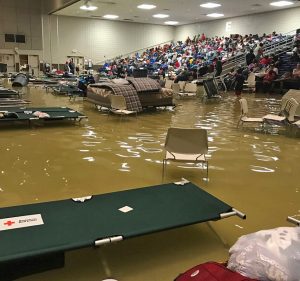 The Beaumont Court of Appeals has upheld a trial court denial of a school district’s plea to the jurisdiction in a contract dispute between the district and a public adjuster in the wake of Hurricane Harvey.
The Beaumont Court of Appeals has upheld a trial court denial of a school district’s plea to the jurisdiction in a contract dispute between the district and a public adjuster in the wake of Hurricane Harvey.
Beaumont Independent School District v. LRG-Loss Recovery Group LLC and Randall Harris (No. 09-22-00144-CV) arose over the school district’s decision to terminate a contract with a public adjuster without paying amounts allegedly due and owing. Following the storm, the district’s superintendent entered into a contract with the adjuster to negotiate with insurers regarding physical losses sustained by Central Medical Magnet High School in Beaumont in return for 9% of the ultimate settlement. Plaintiffs allege that the district received more than $4.5 million in settlements from several insurers but stiffed the adjuster of its $400,000 or so share. Additionally, the district then cancelled the contract. Plaintiffs brought suit for breach of contract. The district filed a plea to the jurisdiction, alleging that it did not waive immunity under Chapter 271, Local Government Code. The trial court sided with the adjuster. The adjuster filed an interlocutory appeal.
In an opinion by Justice Johnson, the court of appeals affirmed. The district made several arguments to escape a reckoning. First, the district asserted that since the contract was not properly executed under Chapter 44, Education Code, it was void as a matter of law and the district retained immunity under Chapter 271 (requiring a contract to be “properly executed”). Sec. 44.031, Education Code, requires school district contracts valued at $50,000 or more to competitively bid. The parties agree that the disputed contract was not competitively bid but disagreed over whether a “carve out” in the statute for emergency replacement or repaid of school equipment or facilities applied. The court held that the carve out did not apply because contract was for adjusting insurance claims, not repairing school property. However, § 44.031 contains a second carve out for contracts for “professional services.” The district argued that insurance adjusting was not a “professional service” under the statute, which names architects, attorneys, CPAs, engineers, and fiscal agents. Observing that the statutory list was non-exclusive, the court disagreed, holding that public adjusters, who are licensed under the Insurance Code, meet the definition of “professional”
Having ruled against the district on the Chapter 44 argument, the court had no trouble finding that the contract was “properly executed” for purposes of § 271.151. The question then became whether plaintiffs met the other requirements of the statute, namely the limitation of recoverable damages to “the balance due and owed by the local government entity under the contract.” § 271.153. The district alleged that plaintiffs didn’t plead the “balance due and owed” nor presented any evidence of such amount. The court rejected this argument, holding that plaintiffs pleaded and presented summary judgment evidence that the contract entitled them 9% of payments, that they had not been paid at all, and that the district had received settlement checks in some amount. Noting that establishing jurisdiction does not require a plaintiff to “preview their case on the merits,” the court held that plaintiffs raised a fact issue as to the amount they were owed and from which pot of insurance money (the district took the position that the contract only covered settlement from one of several insurers that ended up paying something). Moreover, plaintiffs submitted summary judgment evidence showing their entitlement to at least $400,000 as of the date the district cancelled the contract. The court thus held that plaintiffs had satisfied the statutory requirement to allege an amount “due and owed under the contract.” It remanded the case to the trial court for further proceedings.












